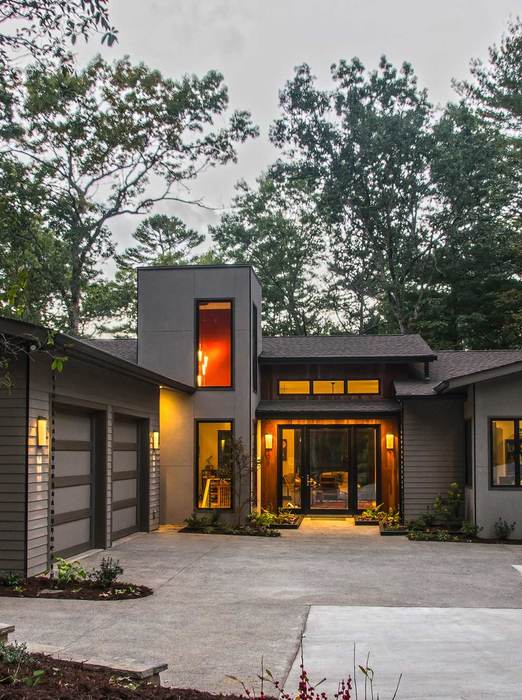Your Roadmap to a Smart Home Purchase
Buying a home is an exciting journey, but it can also feel overwhelming without the right guidance. At HomeSource Realty, we understand that purchasing a home is one of the most significant decisions you’ll make. That’s why we’ve created our comprehensive Buyer’s Guide—your go-to resource for navigating the real estate market with confidence and clarity. Whether you’re a first-time homebuyer or a seasoned pro, this guide is packed with valuable insights to help you make informed decisions at every step of the process.
Buy Your Home With Peace of Mind

HomeSource RealtyBuyer's Guide


how to buy like a pro
Free Buyer's Guide
Comprehensive Real EstateBuyer's Guide
What’s Inside Our Buyer’s Guide?
Our Buyer’s Guide is designed to simplify the home-buying process, offering you practical advice and expert tips to make your experience seamless and stress-free. When you sign up, you’ll discover:
The Step-by-Step Home Buying Process
Tips for Navigating the Finance Process
Negotiation Tactics to Get the Best Deal
What to Look for During a Home Inspection
Understanding Closing Costs and Final Steps
Homebuyer Frequently Asked Questions
The first step is getting pre-approved by a local lender who understands the Asheville market. A pre-approval letter shows sellers you’re serious and gives you a clear price range to work with. From there, connect with a local real estate agent (like us!) who can guide you through neighborhoods, offer strategies for competitive offers, and help avoid costly mistakes unique to mountain homes.
Down payments vary based on the type of loan. In 2025:
- Conventional loans typically require 3–5% down.
- FHA loans require as little as 3.5%.
- USDA and VA loans may offer 0% down in qualifying rural areas of Western North Carolina outside Asheville city limits.
For example, on a $400,000 home in Asheville, you might need anywhere from $0–$20,000+. It's important to note that down payments below 20% typically require private mortgage insurance (PMI), which adds to your monthly housing costs. We can connect you with trusted lenders to break it down further.
Buncombe County’s property taxes are based on the assessed value of the home and vary depending on whether you're in the city of Asheville or unincorporated areas. The tax rate ranges between ~.6% to ~1.09% throughout the county.
Buncombe County was scheduled for property reappraisal in 2025, but commissioners voted to delay the reappraisal until January 1, 2026. This means current assessments remain based on previous valuations, though property values have risen significantly. When the reappraisal occurs, many homeowners may see substantial increases in their assessed values, potentially leading to higher tax bills.
Property owners can appeal their assessments if they believe the valuation is incorrect. It's also important to know about homestead exemptions and other potential tax breaks that may be available to reduce your property tax burden.
Look for a buyer’s agent with deep local knowledge — especially someone who understands slope, septic systems, road maintenance agreements, and radon in mountain properties. Read reviews, ask how many homes they’ve closed in your area, and make sure they listen to your needs. At HomeSource Realty, we’ve helped hundreds of buyers successfully purchase in the mountains — from cozy cabins to luxury estates.
Hidden costs of buying mountain properties in the Blue Ridge region can be substantial and often catch buyers off guard. Beyond standard closing costs, mountain properties may require specialized inspections for well water quality, septic system functionality, and structural assessments for homes built on slopes or challenging terrain.
Well and septic inspections can cost $300-800 each, and if problems are discovered, repairs or replacements can run $5,000-15,000 or more. Mountain properties often require additional insurance coverage for landslides, floods, or wildfire damage, which can add significantly to annual costs.
Access and utility connections are major hidden expenses. Some mountain properties require easement agreements, private road maintenance fees, or contributions to road associations. Utility hookups for remote properties can cost thousands if electric, water, or sewer lines need to be extended. Propane delivery for heating and cooking is common in rural mountain areas and represents an ongoing expense.
Other potential costs include upgraded internet service installation for remote work capability, generator systems for power outages common in mountain areas, and specialized heating systems for higher elevations. Foundation and drainage work may be needed due to mountain terrain, and landscaping costs can be higher due to steep slopes and rocky soil.
Focus your inspection inquiries on major structural and mechanical systems. For properties on sloped terrain, address foundation integrity, drainage systems, and any evidence of soil movement or water intrusion issues.
For properties with private water systems, inquire about well water quality, flow rates, and recent testing results. Regarding septic systems, ask about system age, maintenance history, and any indicators of malfunction. Discuss property drainage patterns and any history of water-related issues.
Additional important topics include roof condition and weather resistance, insulation adequacy for the local climate, and any pest concerns common to the region. For rural properties, address telecommunications availability, internet access, and emergency service accessibility.
The current market presents both challenges and opportunities for prospective buyers. While interest rates of 6-7% are substantially higher than recent historical lows, continued price appreciation means that delaying purchases may result in higher overall costs.
Current market conditions offer some advantages to buyers, including longer average market times (approximately 89 days) and increased seller willingness to negotiate on price and repairs. Competition among buyers has decreased compared to previous years.
You can always refinance later — but you can’t go back and buy the right home once it’s gone. We’ll help you weigh timing, rates, and affordability.
Land purchases typically require different financing structures, with down payments ranging from 20-50% and interest rates generally higher than standard residential mortgages. Some lenders offer combined land-and-home financing packages that may provide more favorable terms.
Ensure you obtain a comprehensive survey to establish precise property boundaries, easements, and access rights. Mountain and rural surveys can be complex and costly due to terrain challenges and may require additional time to complete.
Consider ongoing land management responsibilities such as vegetation management, private road maintenance, and compliance with local regulations regarding additional structures, agricultural use, or livestock. Research any restrictions or covenants that may affect your intended use of the property.Current market conditions offer some advantages to buyers, including longer average market times (approximately 89 days) and increased seller willingness to negotiate on price and repairs. Competition among buyers has decreased compared to previous years.
For buyers planning long-term homeownership who can comfortably manage current payment levels, purchasing now while maintaining the option to refinance if rates improve may be a sound strategy.
Yes! Repair negotiations are a standard part of the purchase process. Most contracts include a due diligence period, typically 14 to 21 days, during which buyers may request repairs, credits, or price adjustments based on inspection findings.
Current market conditions have increased sellers' willingness to address reasonable repair requests, particularly those involving safety concerns or major system failures. Focus your negotiations on significant structural issues, major mechanical system problems, safety hazards, and costly repairs rather than cosmetic concerns.
Many buyers prefer receiving credits toward closing costs or purchase price reductions rather than having sellers complete repairs, as this approach provides greater control over contractor selection and work quality. Be prepared to terminate the transaction if sellers refuse to address major safety or structural deficiencies, as protecting your investment and safety should remain the priority.
Current closing timelines typically range from 30-45 days, though this varies based on financing type and property characteristics. Cash transactions can close in as little as 2-3 weeks.
Conventional financing generally requires 30-40 days for closing, while government-backed loans (FHA, VA, USDA) may extend to 35-50 days due to additional documentation and inspection requirements. Properties with wells, septic systems, or complex surveys often require additional time for specialized inspections and any necessary remediation.
